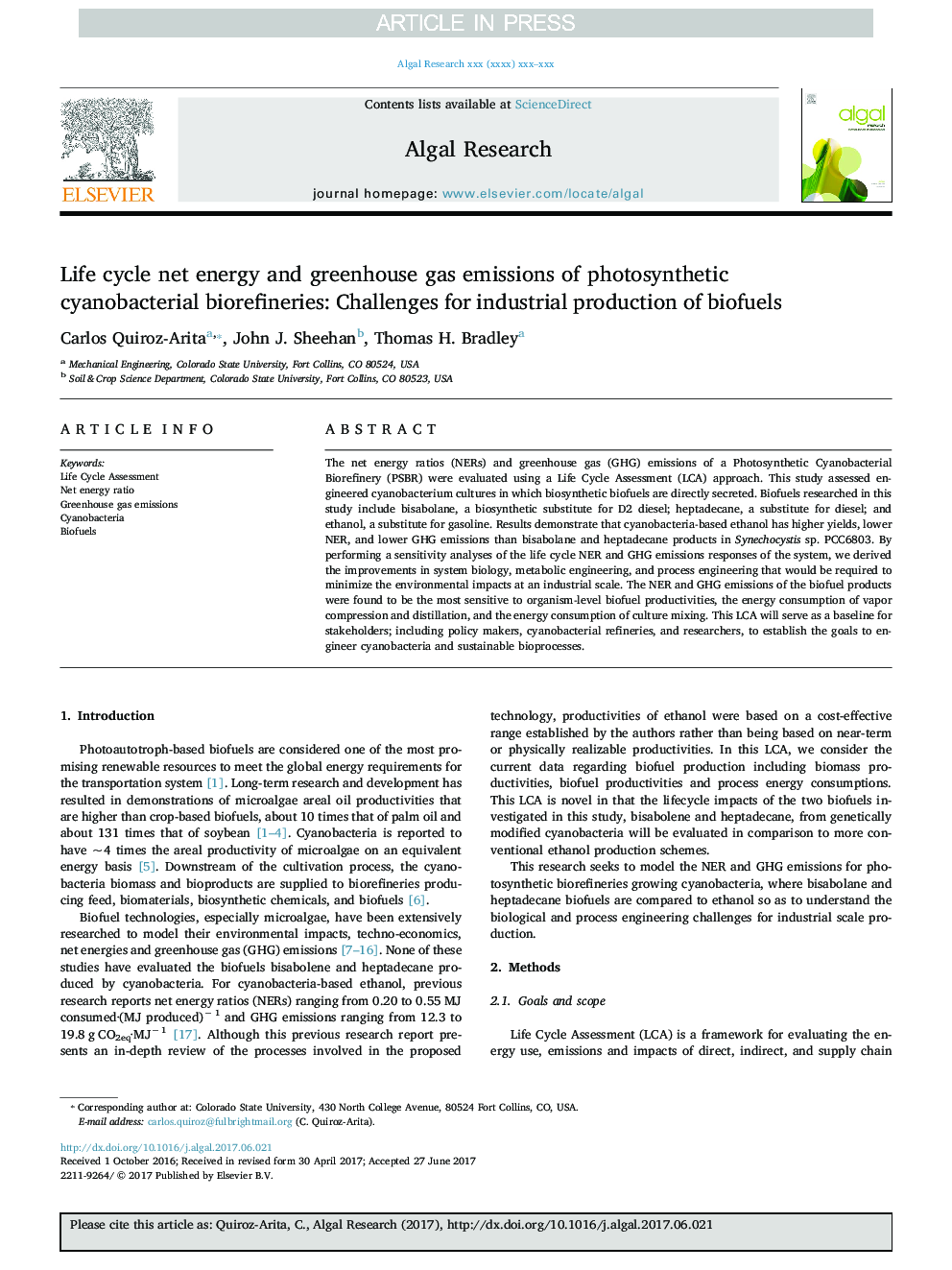| Article ID | Journal | Published Year | Pages | File Type |
|---|---|---|---|---|
| 5478313 | Algal Research | 2017 | 8 Pages |
Abstract
The net energy ratios (NERs) and greenhouse gas (GHG) emissions of a Photosynthetic Cyanobacterial Biorefinery (PSBR) were evaluated using a Life Cycle Assessment (LCA) approach. This study assessed engineered cyanobacterium cultures in which biosynthetic biofuels are directly secreted. Biofuels researched in this study include bisabolane, a biosynthetic substitute for D2 diesel; heptadecane, a substitute for diesel; and ethanol, a substitute for gasoline. Results demonstrate that cyanobacteria-based ethanol has higher yields, lower NER, and lower GHG emissions than bisabolane and heptadecane products in Synechocystis sp. PCC6803. By performing a sensitivity analyses of the life cycle NER and GHG emissions responses of the system, we derived the improvements in system biology, metabolic engineering, and process engineering that would be required to minimize the environmental impacts at an industrial scale. The NER and GHG emissions of the biofuel products were found to be the most sensitive to organism-level biofuel productivities, the energy consumption of vapor compression and distillation, and the energy consumption of culture mixing. This LCA will serve as a baseline for stakeholders; including policy makers, cyanobacterial refineries, and researchers, to establish the goals to engineer cyanobacteria and sustainable bioprocesses.
Related Topics
Physical Sciences and Engineering
Energy
Renewable Energy, Sustainability and the Environment
Authors
Carlos Quiroz-Arita, John J. Sheehan, Thomas H. Bradley,
